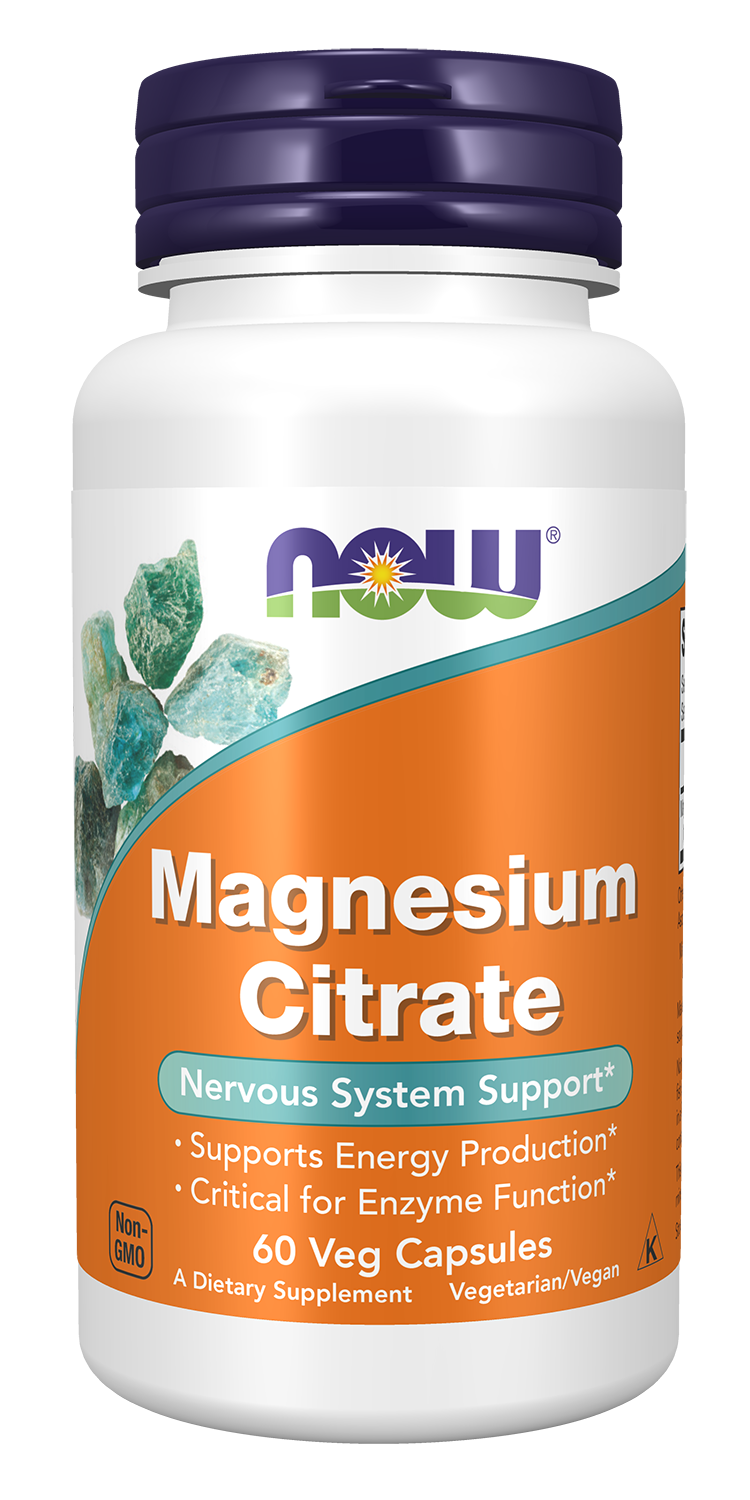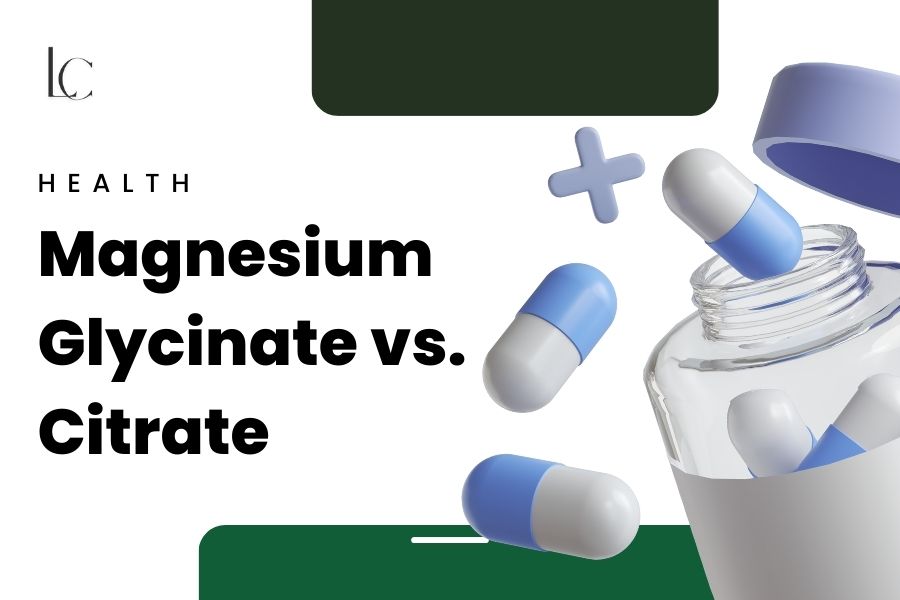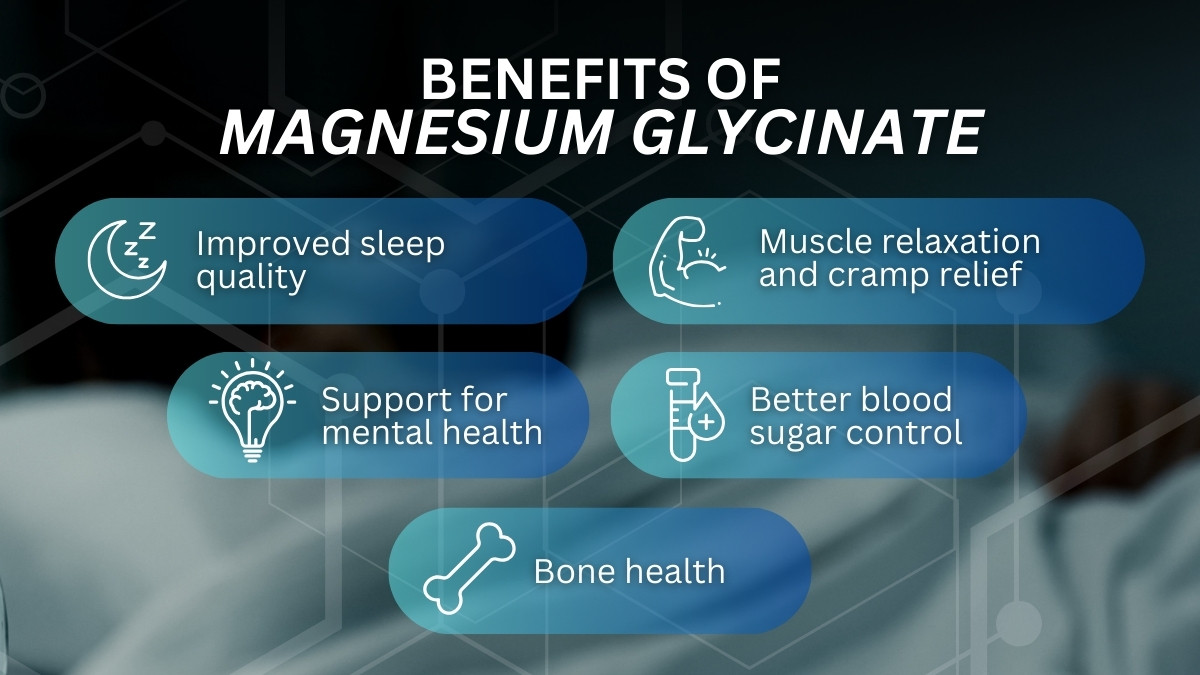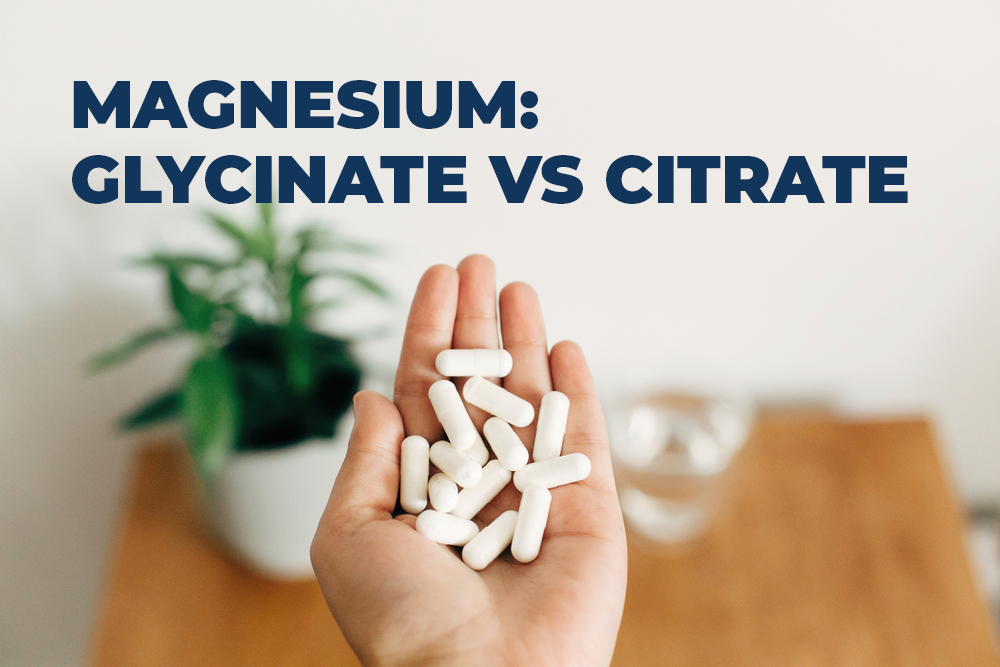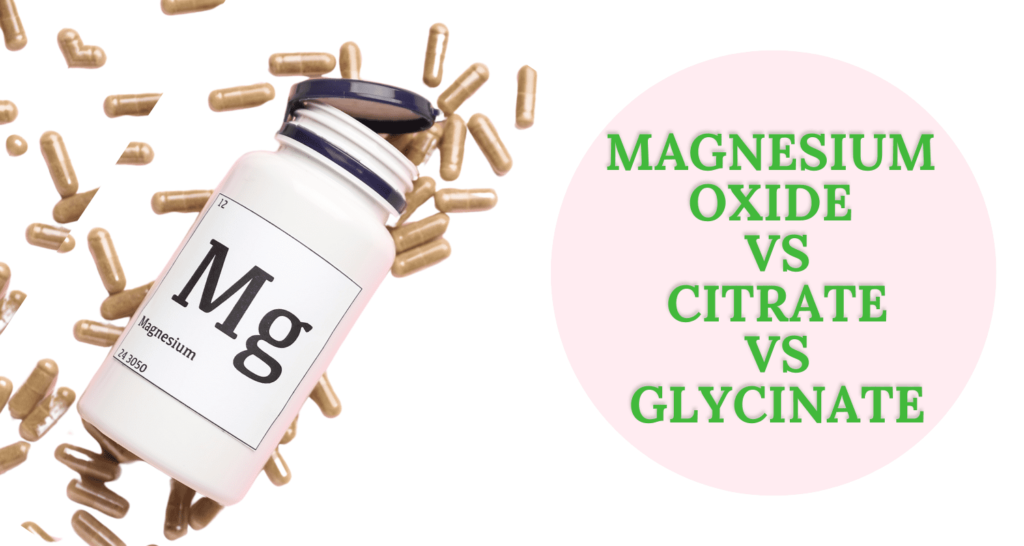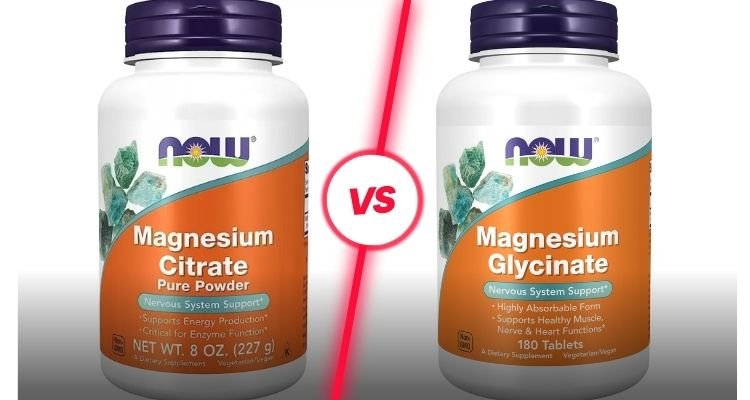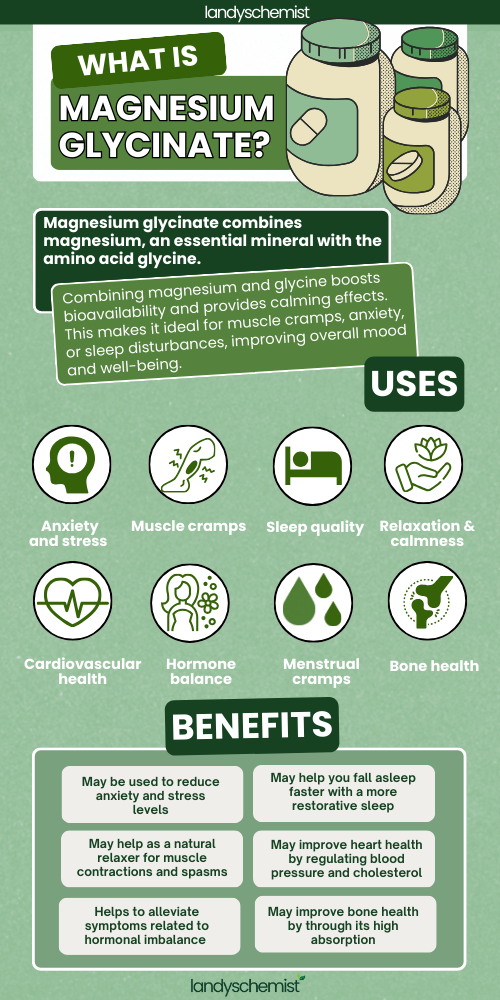Can I Take Both Magnesium Citrate And Glycinate

The world of dietary supplements can feel like a vast and confusing landscape, particularly when navigating the nuances of mineral intake. Among the most popular supplements are magnesium citrate and magnesium glycinate, each touted for its unique benefits and absorption rates. The question arises: can these two forms of magnesium be taken together safely and effectively?
This article delves into the compatibility of magnesium citrate and glycinate, examining their individual properties, potential interactions, recommended dosages, and expert opinions. Understanding the differences and similarities between these two magnesium forms is crucial for anyone seeking to optimize their magnesium supplementation regimen and avoid potential adverse effects. The goal is to provide readers with the information needed to make informed decisions about their health and wellness.
Understanding Magnesium Citrate and Glycinate
Magnesium is an essential mineral involved in hundreds of biochemical reactions in the body. It plays a vital role in muscle and nerve function, blood sugar control, and blood pressure regulation. Different forms of magnesium exist because magnesium must bind to another substance to be stable and bioavailable, meaning readily absorbed by the body.
Magnesium Citrate
Magnesium citrate is one of the most common and affordable forms of magnesium supplements. It is created by combining magnesium with citric acid, a natural compound found in citrus fruits. This form is known for its high bioavailability and is often used as a laxative due to its ability to draw water into the intestines.
The increased water content softens the stool and promotes bowel movements. While effective for constipation, this effect can be a disadvantage for some, leading to loose stools or diarrhea if taken in excessive amounts. It’s often used for occasional constipation relief and as a general magnesium supplement.
Magnesium Glycinate
Magnesium glycinate, also known as magnesium bisglycinate, is formed by combining magnesium with the amino acid glycine. This form is highly absorbable and is considered gentler on the stomach compared to magnesium citrate. Glycine itself has calming properties, which may contribute to improved sleep and reduced anxiety.
Because of its superior absorption and reduced laxative effect, magnesium glycinate is often the preferred choice for those seeking to increase their magnesium levels without digestive upset. It is frequently recommended for individuals with sensitive stomachs or those prone to diarrhea.
The Compatibility Question: Can You Take Both?
The short answer is: potentially, yes, but with caution and awareness. Combining magnesium citrate and glycinate is not inherently dangerous for most individuals. However, it's crucial to consider the potential for additive effects, especially regarding gastrointestinal distress.
Taking both simultaneously can increase the likelihood of experiencing diarrhea or loose stools, especially if taken in high doses. It is generally advisable to start with lower doses of each form and gradually increase them as tolerated. Monitoring your body's response is key to avoiding adverse effects.
Expert Opinions and Recommendations
Many healthcare professionals suggest that combining different forms of magnesium can be beneficial in certain circumstances. Dr. Emily Carter, a registered dietitian specializing in mineral deficiencies, states, "For individuals with significant magnesium deficiency, combining different forms can help maximize absorption and address various needs. For instance, magnesium glycinate can be taken for its calming effect and citrate for its bowel-regulating properties, but always under supervision."
However, Dr. Carter also emphasizes the importance of individualized approaches. "The ideal magnesium supplementation strategy depends on individual needs, tolerances, and underlying health conditions. Some individuals might be more sensitive to the laxative effect of magnesium citrate, while others might not experience any issues."
The National Institutes of Health (NIH) provides guidelines on the recommended daily intake of magnesium, which varies based on age and sex. Before combining magnesium citrate and glycinate, consulting with a healthcare provider is advisable. They can assess individual needs and provide personalized recommendations.
Potential Benefits of Combining Magnesium Forms
Combining magnesium citrate and glycinate may offer a synergistic approach to magnesium supplementation. One potential benefit is addressing multiple needs simultaneously. Glycinate can support sleep and relaxation, while citrate can promote bowel regularity.
For individuals struggling with both constipation and sleep issues, this combination might be more effective than taking a single form of magnesium. However, it's essential to remember that this approach should be carefully monitored to prevent adverse effects.
Risks and Considerations
The primary risk associated with combining magnesium citrate and glycinate is gastrointestinal distress. Symptoms like diarrhea, abdominal cramping, and nausea can occur if the combined dose is too high. Individuals with pre-existing digestive issues, such as irritable bowel syndrome (IBS), may be more susceptible to these side effects.
Another consideration is potential drug interactions. Magnesium can interfere with the absorption of certain medications, including some antibiotics and bisphosphonates used to treat osteoporosis. It is crucial to discuss your magnesium supplementation regimen with your doctor to avoid potential interactions.
Dosage Recommendations and Timing
There is no one-size-fits-all dosage for magnesium supplementation. The recommended daily intake of magnesium ranges from 310 to 420 mg for adults, depending on age and sex. When combining magnesium citrate and glycinate, it is generally recommended to start with lower doses and gradually increase them as tolerated.
A common starting point might be 100-200 mg of magnesium glycinate in the evening for sleep support and 100-200 mg of magnesium citrate in the morning for bowel regularity. It's important to note that these are general guidelines, and individual needs may vary.
The timing of magnesium supplementation can also affect its efficacy. Magnesium glycinate is often taken before bed to promote relaxation and improve sleep quality. Magnesium citrate can be taken in the morning or at night, depending on individual preferences and tolerances.
Future Research and Perspectives
While current research provides valuable insights into the benefits and risks of magnesium supplementation, further studies are needed to fully understand the optimal strategies for combining different forms of magnesium. Future research could explore the specific effects of combining magnesium citrate and glycinate on various health outcomes, such as sleep quality, bowel function, and blood pressure regulation.
Additionally, studies could investigate the impact of individual factors, such as age, sex, and health status, on the efficacy and safety of combined magnesium supplementation. As our understanding of magnesium metabolism and bioavailability continues to evolve, healthcare professionals will be better equipped to provide personalized recommendations for magnesium supplementation.
Conclusion
In conclusion, taking both magnesium citrate and glycinate is potentially safe and even beneficial for some individuals, provided it is done with caution and awareness. Starting with low doses, monitoring your body's response, and consulting with a healthcare professional are essential steps. While combining these forms can address multiple needs simultaneously, it is important to weigh the potential benefits against the risks of gastrointestinal distress and drug interactions.
Ultimately, the best approach to magnesium supplementation is one that is tailored to individual needs and preferences. By understanding the properties of different magnesium forms and seeking guidance from healthcare providers, individuals can optimize their magnesium intake and support their overall health and well-being. Continued research will undoubtedly provide further insights into the complex world of magnesium supplementation, paving the way for more personalized and effective strategies in the future.







